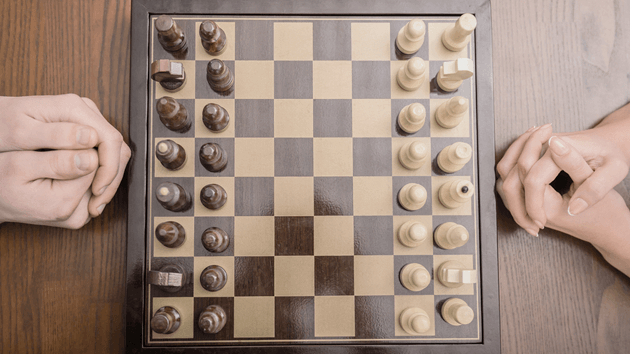

In such a case the draw is not automatic - a player must claim it if he wants the draw. Threefold repetition rule – if an identical position has occurred at least three times during the course of the game with the same player to move each time, and is the current position on the board or will occur after the player on turn makes his move, the player on move may claim a draw (to the arbiter).Stalemate – if the player on turn has no legal move but is not in check, this is stalemate and the game is automatically a draw.For the purpose of calculating Elo rating, these tournaments are treated as if they were using standard scoring.Īrticle 5 of the 2018 FIDE Laws of Chess gives the basic ways a game may end in a draw more complicated ways are detailed in Article 9: ( Schiller 2003:26–29). A minority of tournaments use a different scoring scheme, such as "football scoring" where 3 points are awarded to the winner and 1 point to each in the event of a draw. The 1867 Dundee tournament initiated the awarding of a half point for draws ( Sunnucks 1970:100), which is now standard practice. The 1867 Paris tournament even ignored draws altogether, effectively treating them as double losses. In early tournaments, draws were often replayed until one of the players won, however this was found to be impractical and caused organizational difficulties. The offer of a draw should be recorded by each player in their score sheet using the symbol (=) as per Appendix C.12 of FIDE Laws of Chess. The other player may decline the draw offer by making a move, in which case the draw offer is no longer in effect, or else indicate acceptance. The correct procedure for an offer of a draw is to first make a move, verbally offer the draw, then press the clock. Otherwise, the offer or claim is nullified and the game continues the draw offer is no longer in effect. If the claim is verified or the draw offer accepted, the game is over.

Once a claim or draw offer has been made, it cannot be withdrawn. The draw by fivefold repetition or the seventy-five-move rule is mandatory by the arbiter.Ī claim of a draw first counts as an offer of a draw, and the opponent may accept the draw without the arbiter examining the claim. A draw by threefold repetition or the fifty-move rule may be claimed by one of the players with the arbiter (normally using his score sheet), and claiming it is optional. A stalemate is an automatic draw, as is a draw due to impossibility of checkmate. In games played under time control, a draw may result under additional conditions ( Schiller 2003:26–29). The rules allow for several types of draws: stalemate, threefold or fivefold repetition of a position, if there has been no capture or a pawn being moved in the last fifty or seventy-five moves, if checkmate is impossible, or if the players agree to a draw. It is now standard practice to score a decisive game as one point to the winner, and a draw as a half point to each player.

In the 19th century, some tournaments, notably London 1883, required that drawn games be replayed, however this was found to cause organizational problems due to the backlog. For example, a draw could be called after a move or two, but this would likely be thought unsporting. Ethical considerations may make a draw uncustomary in situations where at least one player has a reasonable chance of winning. Unless specific tournament rules forbid it, players may agree to a draw at any time. Under the standard FIDE rules, a draw also occurs "in dead position", when no sequence of legal moves can lead to checkmate, most commonly when neither player has sufficient material to checkmate the opponent. Usually, in tournaments a draw is worth a half point to each player, while a win is worth one point to the victor and none to the loser.ĭraws are codified by various rules of chess including stalemate (when the player to move is not in check but has no legal move), threefold repetition (when the same position occurs three times with the same player to move), and the fifty-move rule (when the last fifty successive moves made by both players contain no capture or pawn move). In chess, there are a number of ways that a game can end in a draw, neither player winning. A king and one bishop versus a king cannot create a checkmate on either player.


 0 kommentar(er)
0 kommentar(er)
